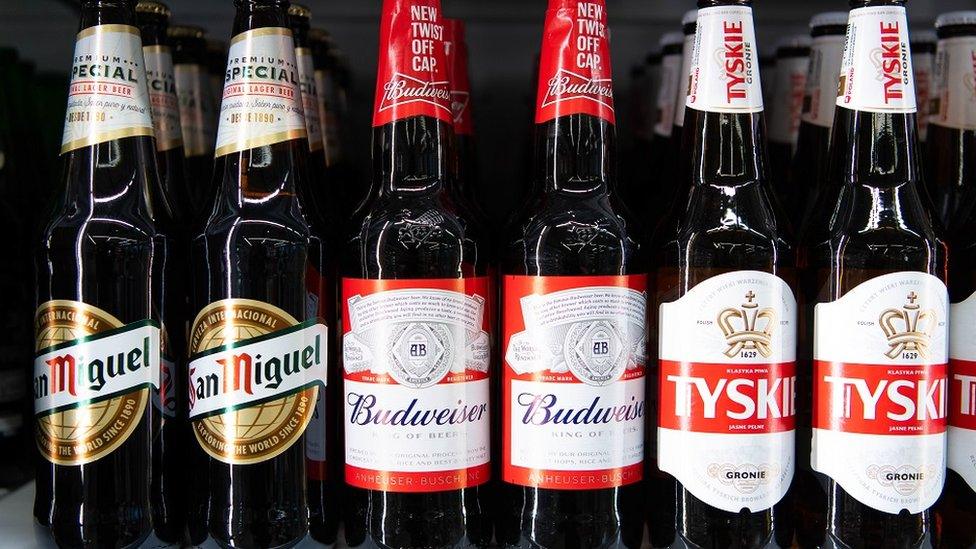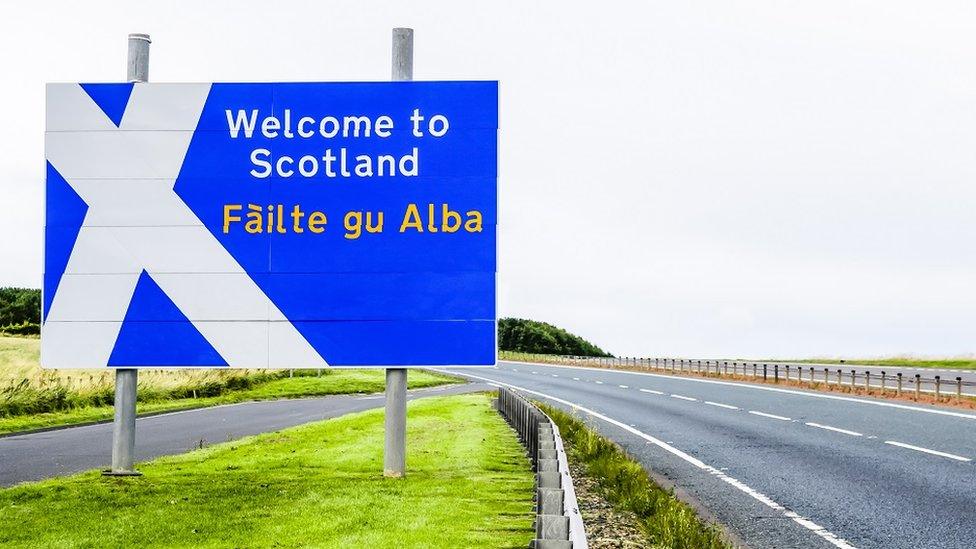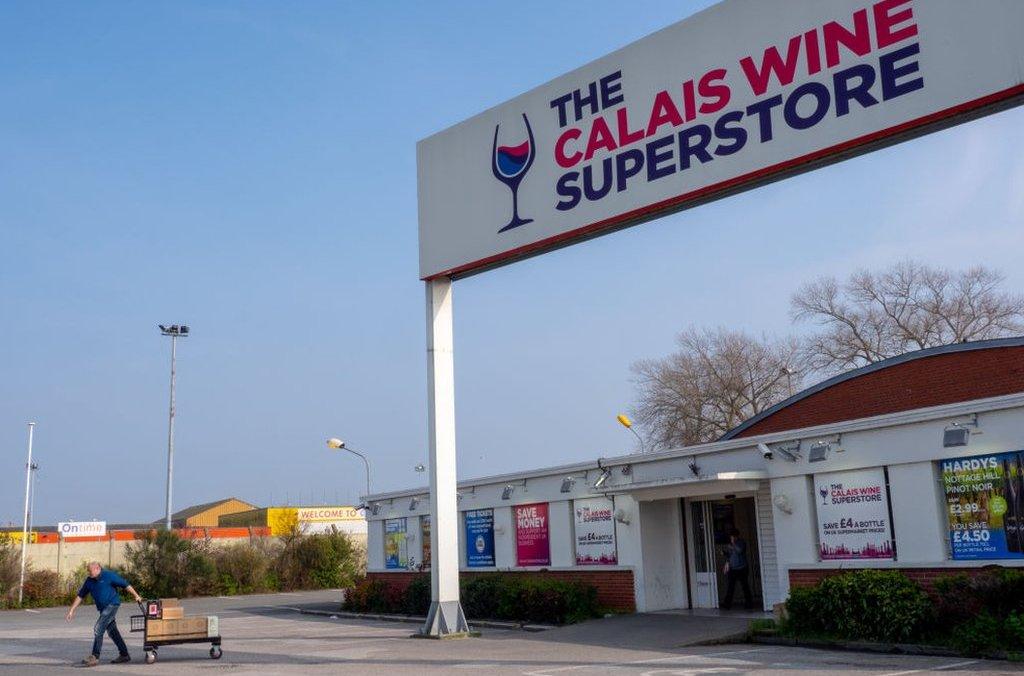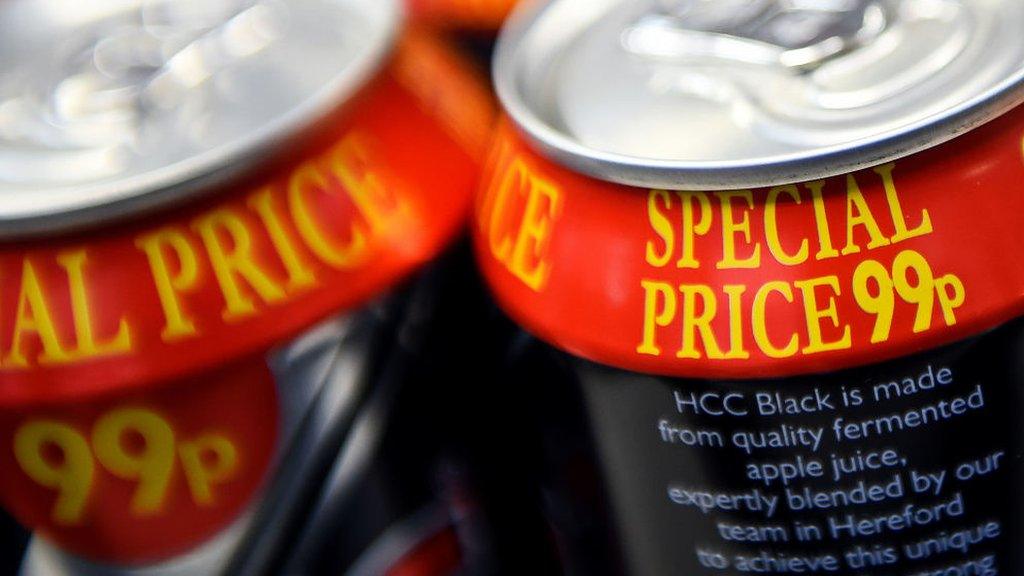Study finds cross-border alcohol buying is minimal
- Published

The study found little evidence of bulk buying of alcohol in England after minimum unit pricing was introduced in Scotland
A study into the impact of minimum unit pricing of alcohol (MUP) in Scotland has found it did not fuel major bulk buying across the border in England.
No retailers questioned found any evidence of the practice taking place.
There were concerns voiced prior to the introduction of MUP in May 2018 that it might see an increase in "booze cruises".
However, a study published by Public Health Scotland (PHS) found any cross-border purchasing was "minimal".
The research looked at the extent to which people might be travelling outside Scotland to buy alcohol at a lower price following the introduction of MUP.
It found that it was not happening on a scale to have an impact on the intended outcomes of the policy in reducing consumption and saving lives.

Most cross-border purchasing was found to be part of "established shopping habits"
Interviews with retailers showed that households in close proximity to the border made most use of cross-border purchasing but this reflected "established shopping habits".
None of them knew of people from Scotland travelling to England to buy large quantities of alcohol.
The study further showed that "substantial bulk purchasing" would be needed for individuals to make significant savings once travel or delivery costs were taken into account.
It also found it had not had a major impact on the number of off-licence premises on either side of the border.


Analysis: Giancarlo Rinaldi, BBC News website south of Scotland reporter
In the end, Carlisle did not become the new Calais.
Fears that lower prices would see vans heading from southern Scotland to northern England, external to stock up with alcohol have proved unfounded.
The study concluded that the scale of purchasing required to simply break even on travel or delivery costs meant it was not worthwhile.
It also found there had been no significant impact on businesses either.
People near the border have always crossed back and forward for shopping trips but alcohol pricing does not appear to have increased their numbers to any great extent.

Helen Chung Patterson, public health intelligence adviser at PHS, said: "The research published today shows that while cross-border purchasing does happen, the extent is small relative to the purchasing behaviours of Scotland's population as a whole.
"A key strength of this report is that it enables us to build up a picture of cross-border alcohol-purchasing behaviours from several perspectives.
"We have examined data on retail sales and alcohol licensing near the border, drawn on qualitative interviews with retailers, gathered customer survey data and explored the factors affecting in-person and online cross-border purchases."
She said the fact that several different sources had produced similar results could increase confidence in the findings.
Related topics
- Published12 October 2021
